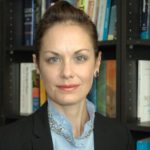With all of the recent essays on the Duck this summer about the job market, citation indexes, and lack of confidence, there seems to be a brewing undercurrent about the anxiety of another academic year. Some of us maybe facing down a PhD defense and the job market for the first time, some of us compiling our pre-tenure review files, and some of us just generally feeling uneasy about a new area of research or a class we’ve never taught. Some maybe anxious about a new job they’ve recently arrived at. I can feel the collective tension reading through the posts and their comments.
I’d like to add one more perspective to the discussion in a hope to ease this tension. Much of what has been said before is from well within the “traditional” view of academia; a view where one has a tenure-track job or where one is attempting to get a tenure-track job. The reality is that getting or keeping these jobs is very difficult, and I cannot rehearse the myriad of factors that go into each. However, what I do think is important to note is that in these previous discussions there is a working assumption that once one is offered or has a tenure-track job, one will do anything to take or keep it. The Holy Grail must be achieved at all costs.
This can include international or bicoastal commuting if one is married or has a partner, or if one refuses to be apart, facing the “two body problem,” where both you and your partner are looking for academic jobs in the same location. In some instances, this is even more difficult if kids are involved. I have friends who have been on the job market for years, away from their spouses and children, because they can only get jobs in other countries.
Then there is the problem of negotiation of family and life with one’s work. I might be a black sheep in this discipline, but I have struggled for the past three years to find this balance because I refused to let one dominate over the other. I left a tenure-track job at the University of Waterloo after finding out that I was pregnant with my daughter. My partner and I were commuting internationally at the time. Since then, I have been at the University of Denver, working first as a Visiting Professor, then as a Lecturer, and now as an Assistant Teaching Professor (DU went through a appointments, tenure and review policy change, which changed status and titles). I have also been on the market for the past 3 years. I am very lucky to have been continuously employed by DU, with a great support network of family and friends, and wonderful students and colleagues. However, I’m still looking for a secure job.
Since getting my PhD, I’ve had one year of solitude off the market. I can tell you all the tricks about cover letters and teaching portfolios, but what I have really learned is that you have to put yourself out there as much as possible, do good work and keep your commitments. I’ve never paid attention to my scholarly citation index, but I keep writing. I receive many rejection letters. I receive harsh comments from reviewers. But I am also open to feedback, talking to a new connection, and other types of jobs that are not “traditionally” academic. I know that the reality is that I will have 9 failures before I have 1 success.
I know the population of readers at the Duck is mostly academic. But I fear that sometimes we inadvertently discipline those who have other commitments or constraints that do not allow them to live inside the pure Ivory Tower. Some might want to do more policy-oriented work, or may have to find other sources of income while on the market. Some may choose family over a tenure line. Some may choose advocacy over academia. Some with a two-body problem may find themselves negotiating with their partner about whose career will “come first.” These are all realities that we don’t much like to talk about or acknowledge. Yet we should.
The point is that much of the discussion gets framed in very rigid terms, and ABDs, graduate students, and even faculty start to internalize this viewpoint as the only viewpoint. This too is dangerous, just as dangerous as being identified as purely an H-Index. “The” way to be an academic is not the only way, and in fact it only fits a small number of people who get their PhDs. So when everyone is gearing up for another year, we should take a deep breath and remember that life comes in all shapes and sizes, and so do academic careers.
Senior Research Analyst at The Johns Hopkins University Applied Physics Laboratory. Fellow at Brookings Institution and Associate Fellow at University of Cambridge Leverhulme Centre for the Future of Intelligence


Thanks for this post, Heather. I know a lot of people that have had similar experiences and I think it is important to talk about academia in all its forms if for no other reason than to alleviate anxieties about “doing it right.” There’s no singular path and that’s increasingly the case.